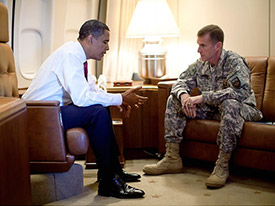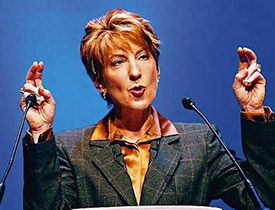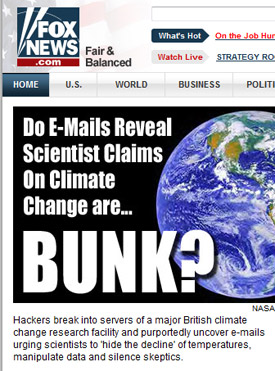‘I didn’t know the mic was on’: Public Talk v. Private Talk
The recent flap over the inopportune comments by General Stanley McChrystal and his staff in the presence of and even directly to a Rolling Stone magazine journalist, and the ensuing hue and cry “off with their heads” for what amounts to something akin to alcohol-fueled barroom B.S.ing and locker-room boys-will-be-boys jock talk, affords an opportunity to distinguish between public talk and private talk.

Private talk is what we say in private to our spouses, family, friends, and colleagues when there is a presumption of privacy such that one’s comments will not go public. Public talk is what we say when we want to make a formal statement or declaration with the intention of and responsibility for what was said. Too often we confuse these two very different forms of expression. Everyone is treating the private talk of McChrystal and his staff as if it were intended for public consumption. It is almost as if McChrystal had held a press conference and issued a formal public statement that Joe Biden’s new name is “bite me.” Surely we should recognize the vast gulf that exists between these two types of talk, and no one would want to insist that all private talk be held as if there were a microphone in the room that was on and broadcasting. Locker rooms and barrooms would go deadly silent.

Something similar happened to California Senatorial candidate Carly Fiorina the day of the primary election, when she was caught mocking the hair of her rival Sen. Barbara Boxer when she thought that her microphone was off, continuing with her private talk about Fox’s Sean Hannity and the cheeseburgers she wished she had eaten the night before.
And let’s not forget last year’s “climategate” flap in which the public discovered that scientists—shock of all shocks—are people who in private talk like everyone else, making fun of colleagues they don’t like, dissing rivals and competitors, and speaking colloquially as if they were not scientists investigating one of the most politically charged scientific issues of the past century—anthropogenic global warming.

On the other hand, if you are a General in charge of executing a war, a Senatorial candidate with aspirations of being one of the handful of people who can actually influence public policy, or a scientist who data and theory could alter entire economies for decades or even centuries, your private talk is not the same as that of everyone else’s. McChrystal knew he was talking to a Rolling Stone reporter, so as the head of hundreds of thousands of combat troops under the ultimate direction of the Commander-in-Chief at 1600 Pennsylvania Ave., he should have been able to filter out his private talk. Ditto Carly Fiorina who, if she wins the Senate seat of a state whose economy rivals that of most countries, is bound to sit before microphones on almost a daily basis, so if she cannot discriminate between public and private talk now, had damn well better learn the difference. Likewise scientists whose opinions on climate change are used by politicians and policy makers worldwide to shape the direction of economic reform, have an obligation to presume that much of their private talk will be used publicly against them (and their recommendations) by those who disagree.
In other words, if you are in a position of power and influence, assume that the microphone is on.

